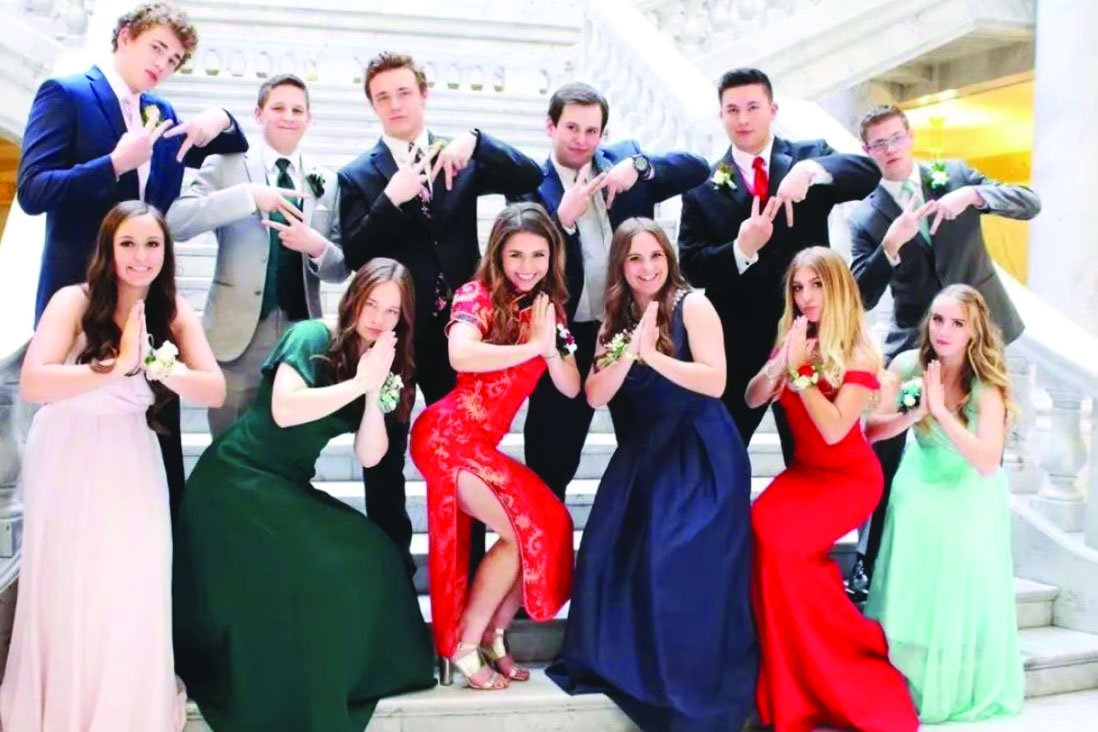The urge to copy western outfits and language prevails in several Asian nations, including China & Japan, in order to communicate with the world
President Joe Biden is not being Russo-savvy when he asks President Putin whether the latter has any intentions of conquering Ukraine. The latter has, with a straight face, denied that there are any plans of an invasion. But there is an attempt to incite pro-Russian elements inside Ukraine to aid and assist a Muscovite takeover of the former republic of the Soviet Union, which went out of the Union in 1991, more or less with 14 other republics. That was when Mikhail Gorbachev was the Russian President. From the Czarist times to 1991, Ukraine was part of the Russian Empire and, since 1917, of the Soviet Union. After leaving the Union, its relations with Moscow were normal but the Kremlin had fears of Ukraine one day joining the European Union or perhaps even the North Atlantic Treaty Organisation (NATO). The current tension between the countries is the result of Kremlin’s apprehensions.
To go deeper into the national psychology beyond international politics, Russians like to be European and would like to avoid being called Asian. The first big act in this direction was the decision of Czar Peter the Great to build a city which opens to Europe, which was St Petersburg, later called Leningrad and now Petersburg. This was in the year 1703. This desire is one of the emotional reasons for keeping Ukraine under Russian tutelage. Similarly, Russia enjoyed the overlordship over Belorussia, Lithuania, Estonia, Latvia and Poland; the last three were quite small and yet Moscow went out to capture these. But for the crises of 1991, they would have continued to be parts of the Soviet Union. The same sentiment did not exist for the six Asian republics, also independent since 1991.
The second factor bugging Moscow is the apprehension that, at some stage, it could lose parts or all of Siberia, which is vast (13 million sq km), rich in resources but with a sparse population. And, of course, its climate is bitterly cold. In 1969, the Soviet Union was forced into a mini-war with China across Ussuri river. Strange as it might seem, the Soviet Union was defeated and lost about 100 islands situated on the rivers Ussuri, Amur and Argun. That mini-war was a historic message that China was a living threat to eastern Russia. Siberia has very few people whereas China across the Ussuri is a region with more people but not enough land area. On the other hand, China is entirely Asian and, therefore, without any European complex.
Uncannily, the Turks suffer from a similar Euro complex. It remained suppressed while the Sultans ruled in Istanbul. Before these Muslim rulers arrived in 1473, a lot of Turkey was called the Byzantium. Without needing any obvious clarification, it was taken to be European and its capital was Constantinople, the city the Sultans renamed Istanbul. By the measures of cartography, only three per cent of Turkish territory is in Europe today; the remaining 97 per cent is situated in Asia. Yet, as Byzantium, no one asked the question whether it was in Europe or Asia. It was a continuation of Greece with the city of Troy, popularised by the enigmatic Helen.
The desire to be European lived on. When after World War I, Mustafa Kemal Pasha, the famous Atatürk, took over as the ruler of Turkey, he exiled the Sultan. He asked his people, both men and women, to wear European clothes and adopt as many western ways as possible. Their future lay in Europe and he exhorted them to look West. In 1928, over only three months, he abolished the Arabic script of the Turkish language and replaced it with Roman alphabets. He also had the Quran converted into these letters. These two measures have endured until now. Atatürk introduced an English model of democratic political system which, under incumbent President Erdogan, is fumbling.
Nevertheless, even Erdogan tried hard to enable his country to join the European Union. Incidentally, Turkey is a member of NATO since its inception after World War II. It was therefore a deep disappointment to be not admitted to the EU. If its religion is the European objection to Turkey’s entry into the club, it’s unlikely that the Turks would gain admission to the European Union. For reasons of history, especially its communist past, Russia remains outside of NATO as well as the EU.
The Euro complex extends far beyond Russia and Turkey. It is not only confined to the English language in order to communicate with the rest of the world, but expands much beyond. The Japanese have gone over to western dresses, first men and then women. After Mao Zedong passed away, the Chinese too have taken to western clothes. In language, both the Japanese and the Chinese have already adjusted, or are adjusting, to the European style. But it is undeniable that the western attire and the English language are the preferred options in most countries across the globe, the fact that Europe and Britain are reported to be on a decline in the civilisational context notwithstanding.
(The writer is a well-known columnist, an author and a former member of the Rajya Sabha. The views expressed are personal.)


























